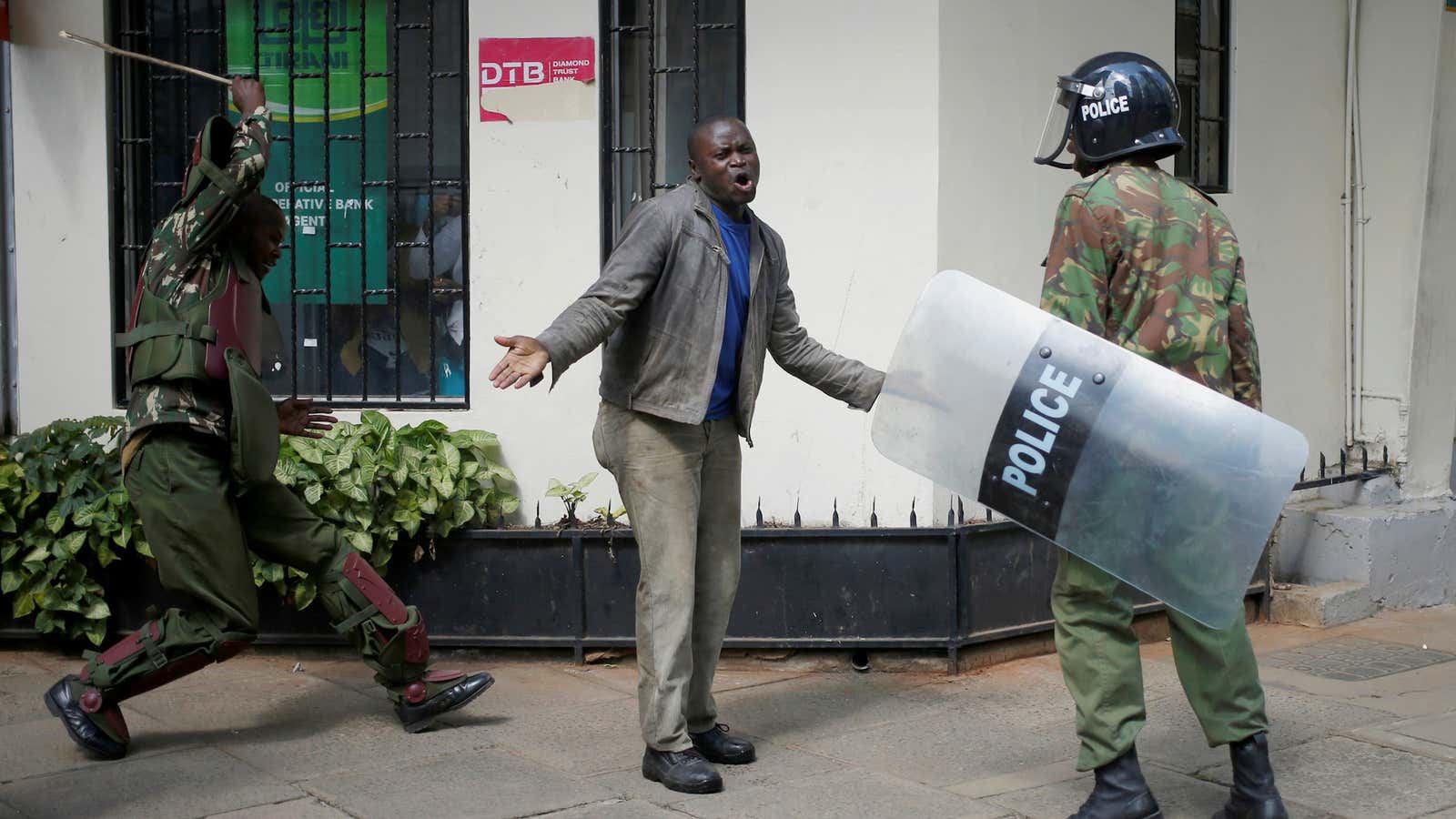The bodies of three Kenyan men— a human rights lawyer, his client, and their driver— were found in a river northeast of Nairobi last week, beaten, bound, and mutilated. Witnesses said one of the men had his eyes gouged out and another had an ear cut off.
The lawyer who was killed, Willie Kimani, worked with the US-based International Justice Mission. He and his client, Josephat Mwendwa, and driver Joseph Muiruriwho had been missing for over a week after attending a June 23 court hearing in Machakos County, near where their bodies were found. Mwendwa had filed a complaint against the police for shooting him without cause in April.
Today, (July 4) demonstrators took to the streets of downtown Nairobi to protest the police and pressure the government to investigate the killings. Protesters carried white coffins splattered in red paint, a symbol of the blood on the government’s hands and signs with the hashtag “Stop Extrajudicial Killings.” Lawyers have promised to boycott court all week. In Eldoret in western Kenya, demonstrators marched outside of a local police station.
The grisly circumstances aren’t new in a country where critics of the government and the police have been dying in mysterious circumstances for years. According to Humans Rights Watch, the Kenyan police has been implicated in hundreds of extrajudicial killings over the past six years. Police have been accused of abducting citizens from their cars, courtrooms, and homes. Some have been killed in public.
Kenya’s official human rights body says it recorded 25 extrajudicial killings in 2014. According to estimates of the Independent Medico-Legal Unit, a Kenyan nonprofit, at least 53 people have been illegally killed by police during the first four months of the year—a rate of about three a week.
The killing of a well-known lawyer near Nairobi may bring home an issue that is more frequently associated with people outside of the capital. Since 2011, disappearances and extrajudicial killings in Kenya’s coastal region—close to its border with Somalia and home to many ethnic Somali Kenyans—have increased as a result of Kenya’s campaign against the militant al-Shabaab group. Kenyan courts rarely investigate these cases and few officers have been held responsible.
Public outrage may mean more scrutiny this time. Three police officers have been arrested and arraigned in court in connection with the deaths of the three men. Activists are also calling on Kenya’s international partners, particularly the United States, the United Kingdom, and Sweden, which have been giving Kenyan police financial support, to put pressure on Kenyan authorities.
“Supporting Kenyan security agencies without insisting on accountability for human rights violations makes donor countries complicit in those violations,” local and international human rights groups said in a joint statement.
